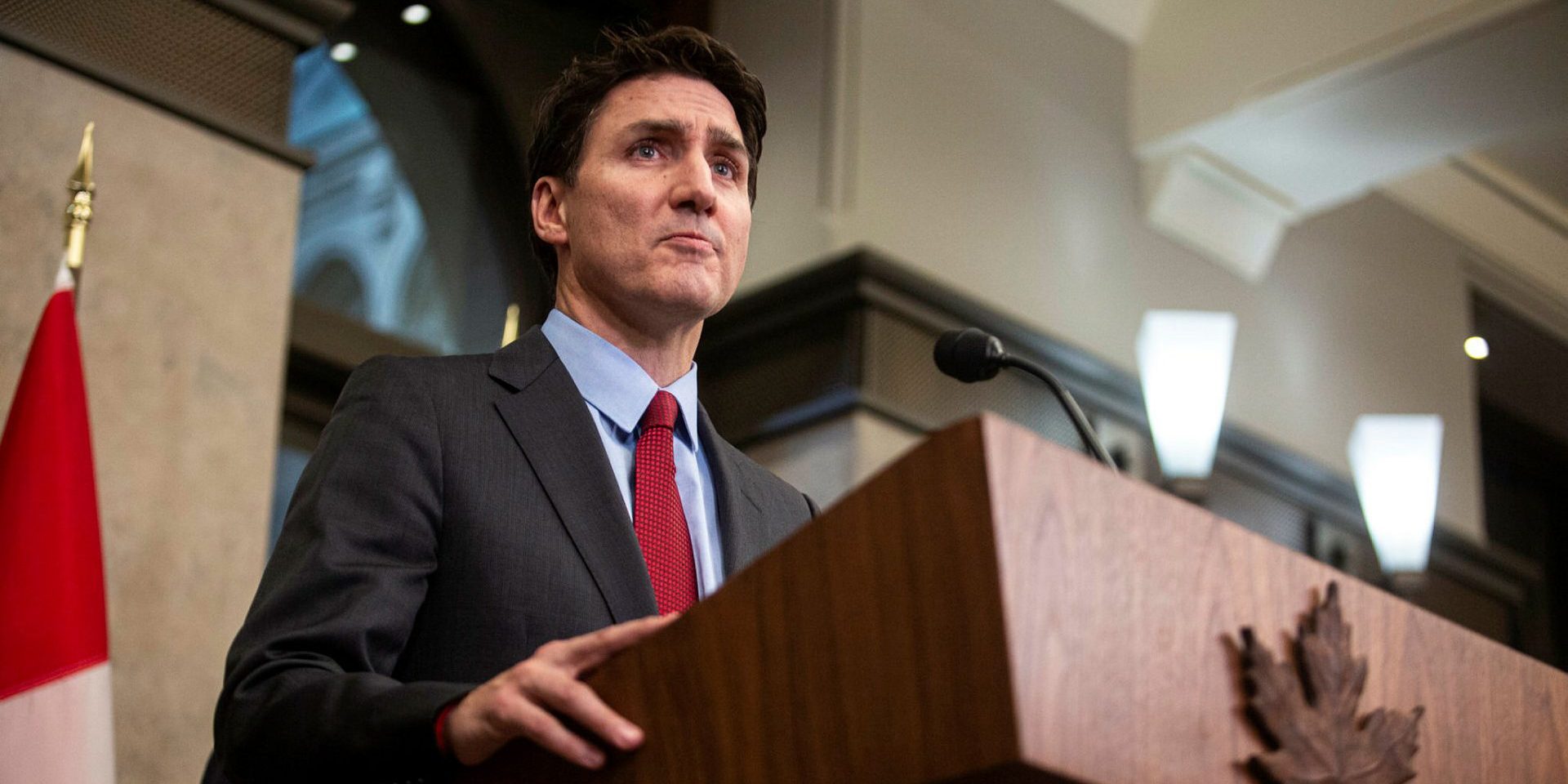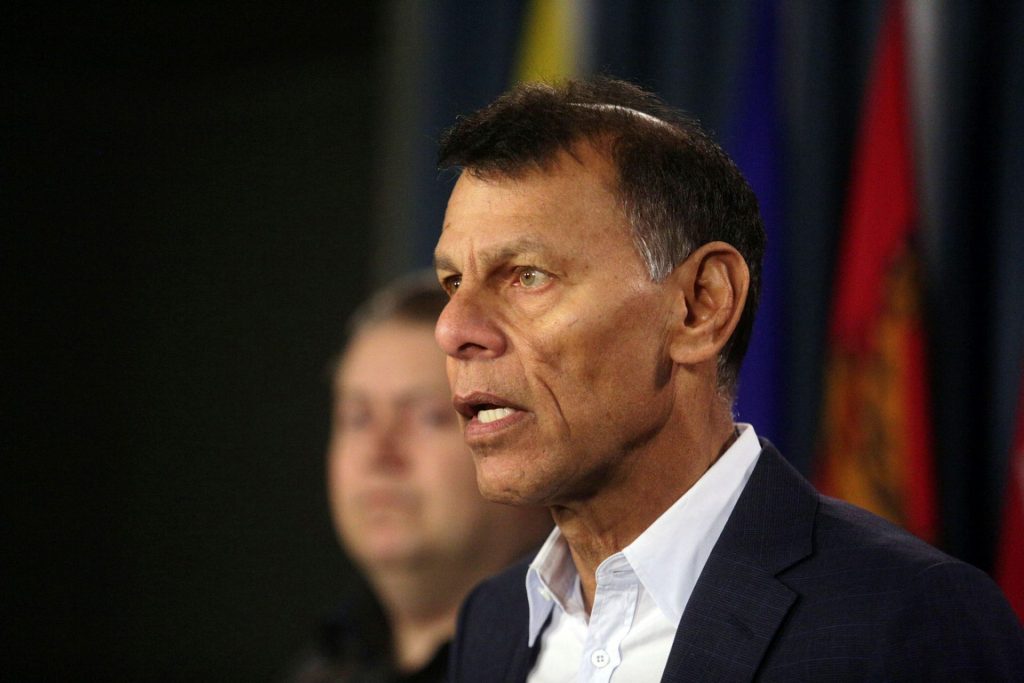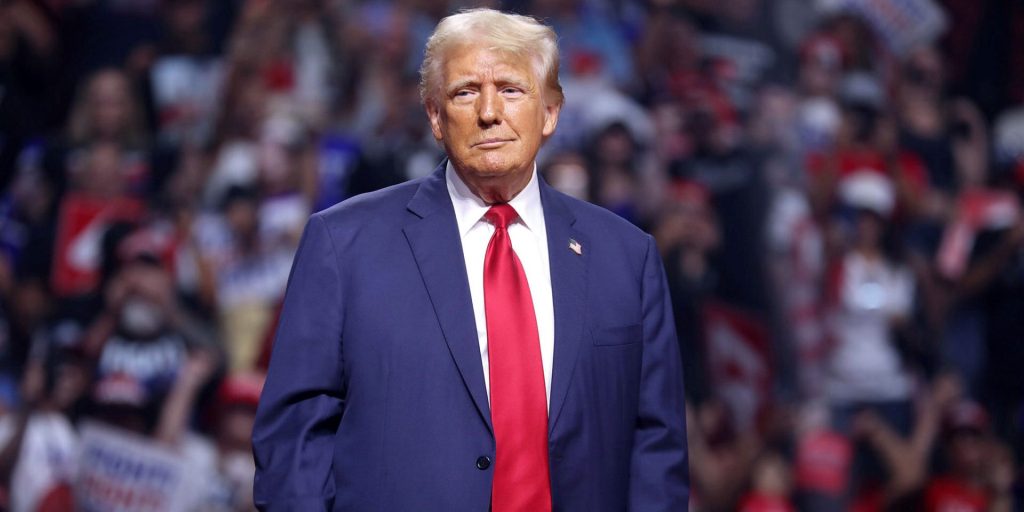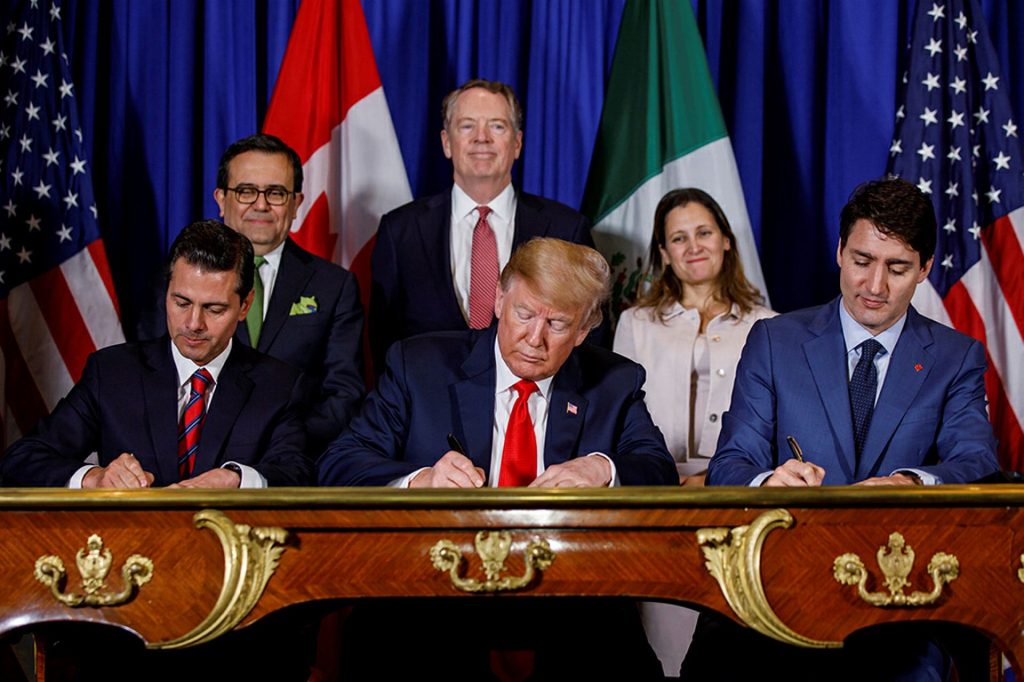‘We can’t take their word’: U.S. ignoring 2019 deal to guide return of steel and aluminum tariffs

An agreement that sets out how levies can be reintroduced on steel and aluminum exports is being cast aside, adding to the growing number of trade commitments that United States President Donald Trump negotiated and is subsequently eschewing.
Amid the fractious NAFTA renegotiations during Trump’s first stint in the White House, Canada said it wouldn’t pass an updated North American pact if steel and aluminum tariffs the U.S. president imposed in 2018 remained in place. A deal was reached on May 17, 2019, to remove those Section 232 national security tariffs to smooth the way towards the pact’s ratification.
On Feb. 10, Trump announced that he would be reimposing a global 25-per-cent tariff on steel and aluminum. Those tariffs are set to come into force on March 12.
The 2019 deal included a mechanism for how tariffs could be reimposed if there is an import “surge meaningfully beyond historic volumes.” In his Feb. 10 executive order, Trump asserts that “imports have surged in excess of historical norms of trade across numerous key product lines.”
In such a case, the Canada-U.S. deal maintains that the “importing country may request consultations with the exporting country,” and “after such consultations” steel and aluminum tariffs may be reimposed.
Independent Senator Hassan Yussuff (Ontario), a member of Prime Minister Justin Trudeau’s (Papineau, Que.) Council on Canada-U.S. Relations, said those consultations have not been requested by the U.S.
“Absolutely none,” he told The Hill Times in a Feb. 14 phone interview.
“The president of the United States decided that he’s going to do this unilaterally without even raising what the concern might be with regards to how we have been operating since the last agreement was reached,” he said.
Yussuff said Canada will maintain that it hasn’t done anything wrong, and is not in contradiction of the deal to which it agreed.
“As to why the president has imposed tariffs, we’re just sitting there [and] scratching our head,” he remarked. “The president has not even said that there has been a violation of the agreement that was reached to begin with as to why he is imposing these tariffs.”
A spokesperson for International Trade Minister Mary Ng (Markham–Thornhill, Ont.) didn’t respond to a request for comment before publication deadline, nor did a spokesperson for the Office of the U.S. Trade Representative.
The lack of consultations is also a violation of a side letter agreement in the Canada-United States-Mexico Agreement (CUSMA) on “future measures.”
“The United States shall not adopt or maintain a measure imposing tariffs or import restrictions on goods or services of Canada under Section 232 of the Trade Expansion Act of 1962 … for at least 60 days after imposition of a measure,” the agreement reads. “During that 60-day period, the United States and Canada shall seek to negotiate an appropriate outcome based on industry dynamics and historical trading patterns.”
The 2018 side letter notes that if the U.S. goes forward with the tariffs, Canada “may take” a retaliatory action of equal commercial value.
But, retaliation on steel and aluminum tariffs is complicated by that 2019 agreement, as it dictates that countermeasures have to be restricted to the “affected sector.”

If Canada followed the agreement, it would mean that the strategy of targeted retaliatory tariffs to affect those with influence in Washington, D.C., would be out of the question. At issue is whether the government has to follow a deal it made with the U.S., if its American counterparts are not.
Yussuff said Canada’s response should “absolutely not” be restricted to “affected sectors.”
“There’s no reason for us to follow it,” he said. “All of the action that the president has embarked on has been unilateral, without any evidence that we have done anything wrong in violation of the agreement.”
“If the U.S. is going to impose tariffs on our products without any justification, by all means, we have to use whatever tools we have to … defend our industry, but equally send a clear message that this is wrong,” he said.
Yussuff said Canada can’t have a narrow response.
“We have to use whatever pressure point we have as a country,” he said.
International trade lawyer Robert Glasgow, a partner at McCarthy Tétrault, said the U.S. is mostly just ignoring their past commitments.
“This is sort of a repudiation of the previous agreement [by the U.S.], and the imposition of a brand-new set of tariffs,” he said.
Glasgow said the U.S. action “frees Canada’s hands to take an innovative response,” and that response is not bound to respond to the same “affected sector.”
“Canada would be constraining itself if it tried to limit itself within the scope of what the previous agreement said when it seems pretty clear that the other side has ripped up the agreement,” he said.
By not following the formal process that was laid out in the CUSMA’s side letter for imposing future measures, Canada could seek the establishment of a dispute settlement panel, Glasgow said. But that is problematic as it is a lengthy process, he noted.
‘We can’t take their word’
With the growing number of deals being flouted by Trump 2.0 that were negotiated by Trump 1.0, it brings into question if Canada can trust that the White House will stick to any agreement it makes.
“All we can say [is that] we will be of good faith in our negotiations, and we hope that the Americans will do the same thing,” Yussuff said. “There’s nothing else we can do.”
He said it raises the question for Canada of whether the U.S. is a reliable partner that can be trusted.
“As of right now, the answer is ‘no,’” Yussuff said. “We can’t take their word because they’re not a reliable partner.”
“As much as we would like to believe and trust the president and his administration, we should also take this with a grain of salt,” he said. “We’re not even sure once we have an agreement that the president can live up to it. And there’s nothing saying he wouldn’t change his mind as he is doing right now.”

He said the 2019 example shows just that.
“We thought we had an agreement that met his test and was good for his country, and was good for us. And here we are in this mess right now, all because he seems to have no regards for things he actually committed to previously,” he said.
Carlo Dade, director of trade and trade infrastructure at the Canada West Foundation, said the situation shows that Canada has lost all certainty with the U.S.
“They’ll violate CUSMA, and then turn around and violate their agreements to fix their violations of CUSMA,” he said in an email.
Tariffs on tariffs
The steel and aluminum tariffs are just one in a series of seemingly unending threats Trump has issued.
The U.S. president threatened a 25-per-cent tariff on all Canadian imports, as well as those of Mexico, with the exception of energy, which would be levied at 10 per cent.
After Canada announced a $155-billion retaliatory tariff plan, and the president held two calls with Trudeau, Trump announced that he was delaying their imposition by 30 days.
During the reprieve, Trump announced the steel and aluminum tariffs. The threat was followed by a pledge to implement a global reciprocal tariff in retaliation for being “treated unfairly by trade partners,” which as of yet has unknown Canadian effects, but could plausibly hit Canada’s digital services tax or GST.
He followed those up by threatening to tariff auto imports around April 2, telling reporters that the initial plan was for April 1, but that he is “a little superstitious.”

The White House has said that the tariffs will be cumulative, as first reported by the CBC.
Yussuff said Canada needs to be level headed until tariff action is taken by the U.S.
“We need to be very prudent, wait until something happens, and then we’ll see the overall impact of what the president is doing,” he said. “And then determine tariffs we may want to [respond with].”
He said based on what is being signalled, Canada will likely have to respond to a cumulative scenario.
“But we don’t know that until they actually do something,” he said, remarking that the threats are a continuously moving target without an obvious destination.
Conservative Leader Pierre Poilievre (Carleton, Ont.) said he would institute dollar-for-dollar tariffs on the U.S. A similar call has also come from NDP Leader Jagmeet Singh (Burnaby South, B.C.), who also proposed a 100-per-cent tariff on Tesla automobiles.
nmoss@hilltimes.com
The Hill Times






 LICENSING
LICENSING PODCAST
PODCAST ALERTS
ALERTS













